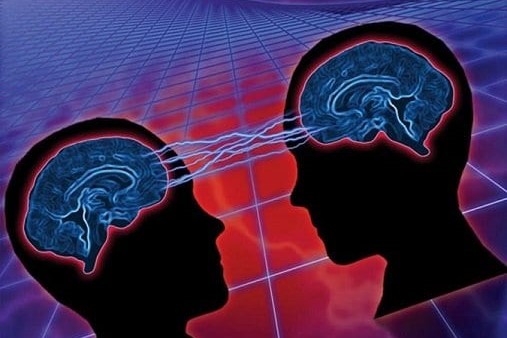
Inception in real life: here's how to graft ideas and memories
Let’s talk about inception: research conducted at the University of Pennsylvania reveals the possibility of controlling a person’s will and behavior through an alternative use of modern neurological diagnostic and therapeutic tools
From Inception to real life
One of the main topos that have made the history of literary and cinematic science fiction in the 20th century is definitely mental manipulation and brainwashing.
They are carried out against an individual or an entire community by means of futuristic as well as disturbing technologies.
“Total recall,” “Matrix,” “Inception,” “Dark city,” are just a few of the works that have addressed this topic, which draws heavily from the great philosophical themes about the nature of what we call reality and the unknown of free will.
We viewers, however, could sleep soundly, as these distressing scenarios seemed confined to the realm of human imagination alone.
At least, until now.
Inception, from engineering to neuroscience
Dr. John D. Medaglia, of the Department of Psychology at the University of Pennsylvania, has published research in which he discusses the concrete possibility, of “grafting” fictitious thoughts, ideas and memories into a patient’s mind.
Such thoughts would not originate from the subject’s actual experience, but from the manipulation of neuronal circuits and electrochemical signals transmitted from one neuron to another.
To achieve this, Medaglia hypothesizes the use of state-of-the-art neurotherapy techniques.
Medaglia’s idea is to use the technique of engineering automatic control.
The goal is to create feedbacks in brain circuits that, according to learning theory, should “fix” memories in the brain in long-term memory.
Memories in this case artifacts that would have the effect of being able to control the subject’s behavior and actions at will.
Nowadays, therapies such as transcranial magnetic stimulation (TMS), are already being used to treat psychiatric and neurological disorders such as schizophrenia, Parkinson’s disease and depression.
Such therapies take advantage of the action of electromagnetic induction on the electrical activity of the brain.
Other therapies, however, use more invasive and direct methods such as inserting electrodes into the brain box.
Both techniques, as well as simple visual, auditory, tactile, and olfactory sensory signals, are all likely candidates for the transmission of retroactive signals.
Inception, an Orwellian scenario
Of course, it is still too early to say whether this technique will be successful or not.
What is certain, however, is that the ethical implications of such a study would be decidedly alarming, and would require the utmost attention of institutions and bioethics committees.
It will then be inevitable to watch those science fiction movies again without feeling a few extra chills down our spines.
Are we really on the eve of the birth of a true “obedience machine”?
Bibliography
https://www.nature.com/articles/s41562-017-0119
Medaglia, J. D., Zurn, P., Sinnott-Armstrong, W., Bassett, D. S., Mind control as a guide for the mind, https://arxiv.org/abs/1610.04134 , (2017)
Read Also
Emergency Live Even More…Live: Download The New Free App Of Your Newspaper For IOS And Android
Trichotillomania, Or The Compulsive Habit Of Pulling Out Hair And Hairs
Body Dysmorphophobia: Symptoms And Treatment Of Body Dysmorphism Disorder
Psychosomalisation Of Beliefs: The Rootwork Syndrome
Paediatrics / ARFID: Food Selectivity Or Avoidance In Children
Obsessive Compulsive Disorder (OCD): An Overview
Tics And Swearing? It’s A Disease And It’s Called Coprolalia
Craving: Desire And Imagination
Paranoid Personality Disorder: General Framework
Obsessive-Compulsive Personality Disorder: Psychotherapy, Medication
What Is Lima Syndrome? What Distinguishes It From The Well-Known Stockholm Syndrome?
Recognising The Signs Of Compulsive Shopping: Let’s Talk About Oniomania
What Is OCD (Obsessive Compulsive Disorder)?
Antipsychotic Drugs: An Overview, Indications For Use
Metropolitan Police Launches A Video Campaign To Raise Awareness Of Domestic Abuse
Metropolitan Police Launches A Video Campaign To Raise Awareness Of Domestic Abuse
World Women’s Day Must Face Some Disturbing Reality. First Of All, Sexual Abuse In Pacific Regions
Child Abuse And Maltreatment: How To Diagnose, How To Intervene
Child Abuse: What It Is, How To Recognise It And How To Intervene. Overview Of Child Maltreatment
Does Your Child Suffer From Autism? The First Signs To Understand Him And How To Deal With Him
Emotional Abuse, Gaslighting: What It Is And How To Stop It
Obsessive-Compulsive Personality Disorder: Causes, Symptoms, Diagnosis, Therapy, Medication
Dysposophobia Or Compulsive Hoarding Disorder
Trichotillomania: Symptoms And Treatment



